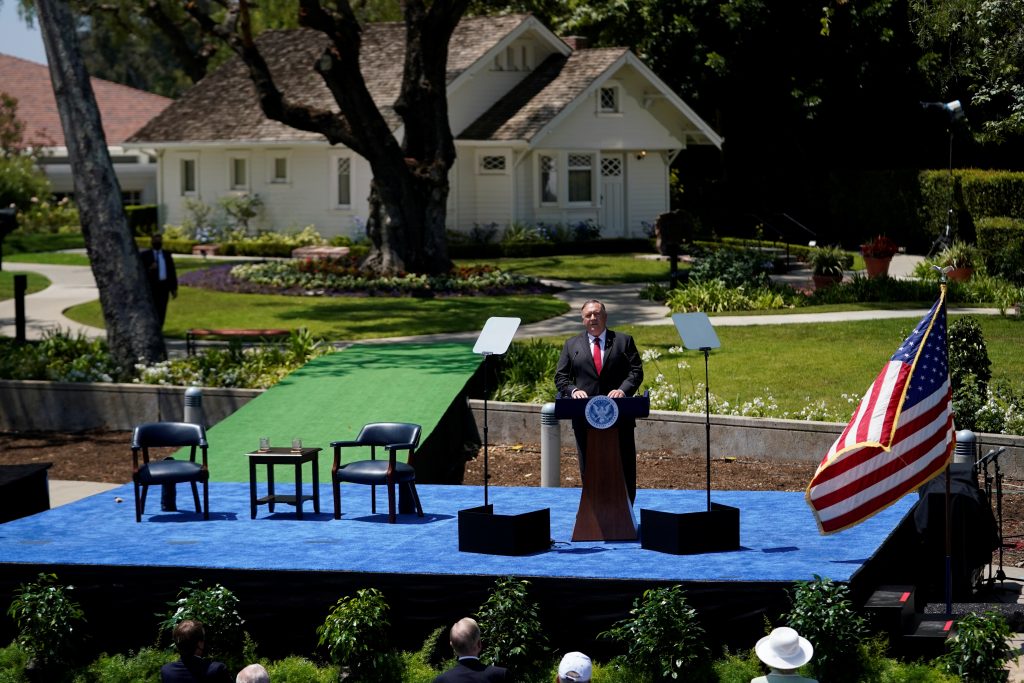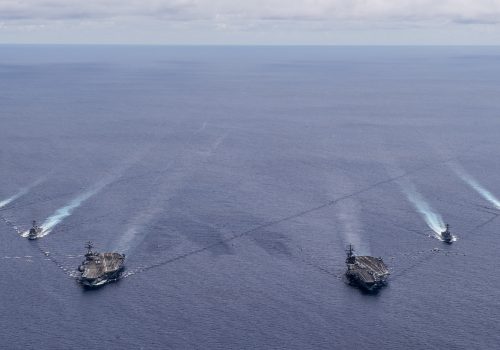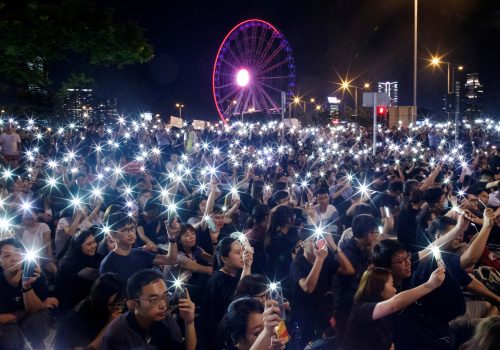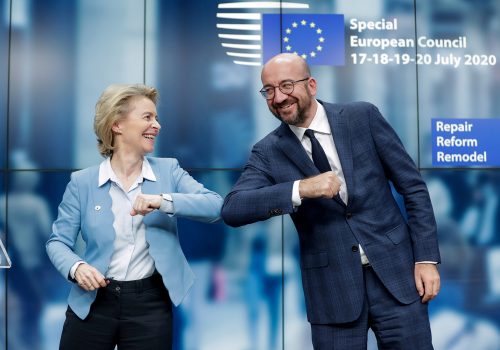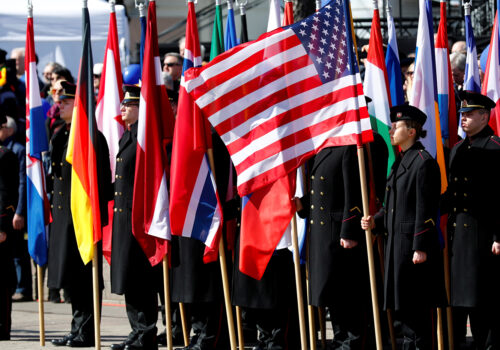We’ve never been here before.
The escalating confrontation between the United States and China is so perilous because the world’s two largest economies – and the two defining countries of their times – are navigating uncharted terrain.
Secretary of State Mike Pompeo’s landmark speech at the Nixon Library on Thursday marked the most robust call to action yet against the Chinese Communist Party. It came amid tit-for-tat consular shutdowns in Houston and Chengdu, and the Friday arrest by the FBI of an alleged Chinese military operative in San Francisco.
It’s tempting to brand this a hotter phase of a new Cold War, as this column did just last week. However, that language understates the historic novelty of what’s unfolding and its epochal enormity.
It’s a unique moment because the United States, since its rise to global power, has never confronted such a potent peer competitor across so many realms: political, economic, technological, military and even societal.
Get the Inflection Points newsletter
Subscribe to Frederick Kempe’s weekly Inflection Points column, which focuses on the global challenges facing the United States and how to best address them.
It’s new as well because no country in modern history has risen as quickly as China, from 2% of global GDP in 1980 to some 20% of global GDP in 2019. That leaves Beijing, for the first time, confronting global challenges without the learning curve of a more gradual evolution.
It is also new because the U.S. and China, after four decades of wishful collaboration, are now locked in a contest that could define our times. It isn’t a struggle, as the hyperbole would have it, over “world domination,” which no country has ever achieved. But it could have significant impact on “world determination,” influencing whether democracy or autocracy, market capitalism or state capitalism, are the flavors of the future.
It is a unique period as well in that this unfolding contest coincides with the Fourth Industrial Revolution and an era of unprecedented technological change driven by big data, artificial intelligence, quantum computing, bioengineering and so much more.
The fact that all this coincides with the worst pandemic in a century deepens and accelerates the drama, with China being both the plague’s source and potentially biggest benefactor as the first major economy to escape its claws.
For some context to understand the dangers of our times, think of what’s coming as an updated version of the period between World War II’s end in 1945 and the Cuban Missile Crisis in 1962.
It took the United States and the Soviet Union that fraught period and a near-nuclear war over Cuba before the defining relationship of that era settled into the patterns of nuclear agreements, superpower summits and mutual recognition of red lines that prevented catastrophic war.
Today’s Berlin, the deciding point in this new contest, could well be some combination of Taiwan and the South China Sea. Where the United States sees a sovereign democracy in Taiwan and the South China Sea as international waters, China sees territory and waters that are ultimately its property.
That Secretary Pompeo chose the Nixon Library for his historic speech was deft staging. Pompeo noted that next year would mark the 50th anniversary of Henry Kissinger’s secret mission to China, which began Beijing’s opening to the United States and the Western world.
“Taking the long view,” wrote Nixon in Foreign Affairs in 1967, “we simply cannot afford to leave China forever outside the family of nations, there to nurture its fantasies, cherish its hates and threaten its neighbors. There is no place on this small planet for a billion of its potentially most able people to live in angry isolation.”
Pompeo focused on this line from the article, linking Nixon’s aims to President Trump’s follow-up. “The world cannot be safe until China changes,” wrote Nixon. “Thus, our aim, to the extent that we can influence events, should be to induce change.”
Said Pompeo: “The kind of engagement we have been pursuing has not brought the kind of change inside of China that President Nixon had hoped to induce.”
He added later, “We, the freedom-loving nations of the world, must induce China to change in more creative and assertive ways, because Beijing’s actions threaten our people and our prosperity.”
Pompeo’s remarks were the last of a quartet of speeches from National Security Advisor Robert O’Brien on ideology, FBI Director Chris Wray on espionage and Attorney General William Barr on economics. They are intended to be read as a package.
It’s perhaps understandable that the U.S., in these early days, still lacks a comprehensive strategy for our times that has been coordinated with allies. Yet former National Security Advisor Stephen Hadley gives the Trump administration credit for sharpening the country’s focus on our new era of major power competition with its National Security Strategy of December 2017.
Hadley sees as a significant next step toward a U.S. strategy this week’s little-noticed introduction of comprehensive legislation by the chairman of the Senate Foreign Relations Committee, Jim Risch, and other Republican lawmakers. Weighing in at 160 pages, its aim is no less than “to advance a policy for managed strategic competition with the People’s Republic of China.”
No doubt there is a domestic political element in such a significant electoral year. Expect President Trump and his top officials to remind critics that President Reagan was vilified as he stepped up his campaign against the Soviet Union as “the evil empire.” Yet history now vindicates him. Trump will embrace that Reagan legacy and argue his electoral opponent, former Vice President Joe Biden, is too weak to take on China.
Even if Trump loses in November, the architects of this more assertive approach to China hope that they have put in place a policy approach that will endure.
Hadley argues that any effective approach to countering China would have to include domestic investments in technology and infrastructure, the healing of political divisions, rallying friends and allies while refurbishing the U.S. global brand, and engaging with China on issues neither country can address alone.
“Any U.S. administration is going to need a sustained strategy for dealing with China to set up a set of norms and rules of the road without dividing the world and plunging us into a war nobody wants,” says Hadley. “It will be the work of years before we get this right.”
This article originally appeared on CNBC.com
Frederick Kempe is president and chief executive officer of the Atlantic Council. You can follow him on Twitter @FredKempe.
THIS WEEK’S TOP READS
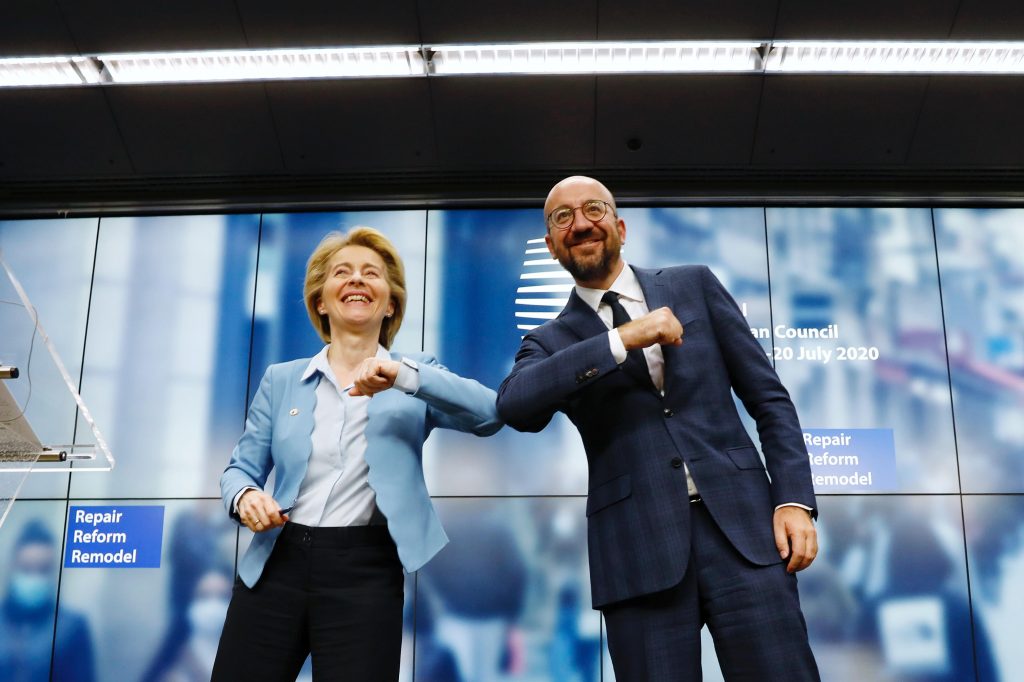
This week’s top reads begin with the full text of the Pompeo speech and the draft legislation intended to help manage competition with China. David P. Goldman argues in The Wall Street Journal that the U.S. would best go on offense and invest Reagan-era levels into advanced technology and education.
Another major inflection point this week came through the European Union’s historic agreement to borrow money collectively for COVID-19 economic relief. Politico reconstructs the four-day, four-night marathon summit through an interview with European Council President Charles Michel. And in Turkey, President Erdogan makes history as well by restoring Hagia Sophia as a working mosque after nine decades as a museum.
This week’s must-read on the cover of today’s New York Times Magazine is a glimpse into the future of journalism, as ProPublica reporter Abraham Lustgarten travels to Central America and draws from a statistical model to look into the future of climate-driven migration.
#1. PLAYING OFFENSE
What China Learned From Cold War America
David P. Goldman / THE WALL STREET JOURNAL
David P. Goldman argues in the WSJ that it is time for the U.S. to restore Reagan-era funding levels for basic research, Manhattan Project priority for critical technologies, a national program for 5G build-out, and a science education program akin to the National Defense Education Act of 1958.
“China thinks that power is the arbiter of world affairs, and that technology is power,” writes Goldman, the Spengler columnist for the Asia Times. “That’s something it learned from Ronald Reagan. He won the Cold War with a military buildup that catalyzed an economic revolution … The Soviet Union folded in the face of America’s superior arms and entrepreneurial growth. China watched and learned.” Read More →
#2. POMPEO’S SPEECH AND THE CONGRESS BILL
Communist China and the Free World’s Future
Mike Pompeo / THE AMERICAN INTEREST U.S. DEPARTMENT OF STATE
Strengthening Trade, Regional Alliances, Technology, and Economic and Geopolitical Initiatives Concerning China Act (STRATEGIC Act)
SENATE FOREIGN RELATIONS COMMITTEE
Sometimes the week’s must-read is original source material and not journalistic interpretation.
Given how carefully it was prepared, Pompeo’s speech is worth reading in its entirety, whether you’re a fan or a foe. It was meant to mark a turning point.
“The only way to truly change communist China is to act not on the basis of what Chinese leaders say,” declared Pompeo, “but how they behave. And you can see American policy responding to this conclusion. President Reagan said that he dealt with the Soviet Union on the basis of ‘trust but verify.’ When it comes to the (Chinese Communist Party), I say we must distrust and verify.” Read More →
And for those who doubt there is a comprehensive U.S. strategy to manage this competition without stumbling into war, brew some coffee and sit down with a 160-page draft bill that was introduced this week. Among other measures, it calls for appropriations “to work with allies and partners in the Indo-Pacific region” to better align themselves on freedom of the seas.
A final section of the bill is usefully devoted to “fostering cooperation between the United States and the People’s Republic of China,” noting joint efforts on everything from the global environment to the export of elephant ivory.
One should hope both houses will pass this despite their limited schedule through November elections. Read More →
#3. SAVING EUROPE
Charles Michel, the budget deal and the art of the terrace tête-à-tête
David M. Herszenhorn and Florian Eder / POLITICO
The European Union’s longest summit in 20 years ended with a historic agreement that, for the first time, committed European Union countries to borrow money collectively and distribute much of it as grants that do not need to be repaid by countries hit hardest by COVID-19.
Politico reporters David M. Herszenshorn and Florian Eder deliver the summit’s best read. They sit down with European Council President Charles Michel, who reconstructs the four days and four nights that he kept the leaders talking before reaching an accord on a historic 1.8 billion euros package that included a coronavirus recovery fund and a seven-year budget – “representing a fundamentally deeper fiscal integration than ever before.”
Michel went to extreme lengths to keep them talking, including huge doses of coffee and Coca Cola Zero. At one point he told them he would have the airport shut when French President Macron threatened to leave. “It was a joke, but I told them that I know the Belgian prime minister very well and I intended to ask her to close all the Belgian airports as long as we don’t have an agreement,” he said.
The rest is, quite literally, history. Read More →
#4. THE MEANING OF A MOSQUE
Erdogan Fulfills a Goal, Reopening a Mosque as Cameras Click
Carlota Gall / THE NEW YORK TIMES
The Hagia Sophia in Istanbul has seen a lot of inflection points since its Byzantine beginnings. So it’s worth reading Carlota Gall’s NYT report on its restoration by President Erdogan as a working mosque that opened to worshipers on Friday.
Built in the sixth century, Gall reports, “it was for nearly a thousand years the largest church in the world and the center of Christendom.” In 1453, the Ottoman sultan Mehmed II conquered Constantinople and converted it into one of Islam’s holiest sites.
Then Mustafa Kemal Ataturk, still revered for founding the modern Turkey republic, ended all religious services and made Hagia Sofia a museum, World Heritage site and tourist attraction, which it has been for 86 years. Gall’s piece is a smart report on the color of the event and a balanced rendering of those celebrating the decision and those who oppose it.
Most of all, however, this is about Erdogan’s understanding of his own place in history. Read More →
#5. THE GREAT CLIMATE MIGRATION
The Great Climate Migration Has Begun
Abraham Lustgarten / PROPUBLICA AND NEW YORK TIMES MAGAZINE
This week’s must-read is a brilliant, data-supported New York Times Magazine cover story on the frightening future of climate-driven migration. It is written by Abraham Lustgarten, a senior reporter from ProPublica, with support from the Pulitzer Center for the creation of a statistical model to support his reporting. This is how the future of great journalism looks.
“As their land fails them,” writes Lustgarten, “hundreds of millions of people from Central America to Sudan to the Mekong Delta will be forced to choose between flight and death. The result will almost certainly be the greatest wave of global migration the world has seen.”
Their model “projects that migration will rise every year regardless of climate, but that migration increases substantially as the climate changes. In the most extreme climate scenarios, more than 30 million migrants would head toward the U.S. border over the course of the next 30 years.” Read More →
QUOTE OF THE WEEK
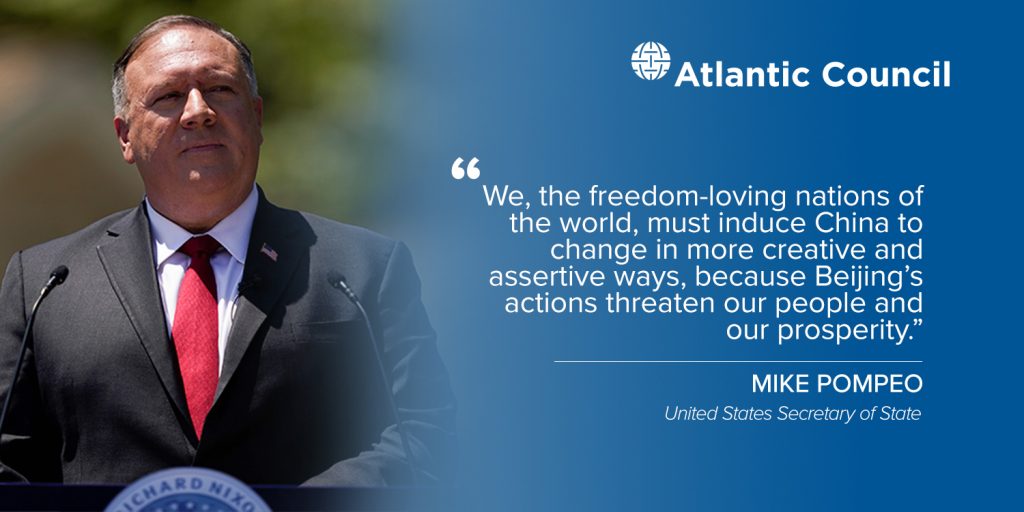
ATLANTIC COUNCIL TOP READS
Image: U.S. Secretary of State Mike Pompeo speaks at the Richard Nixon Presidential Library, in Yorba Linda, California, U.S., July 23, 2020. Ashley Landis/Pool via REUTERS
